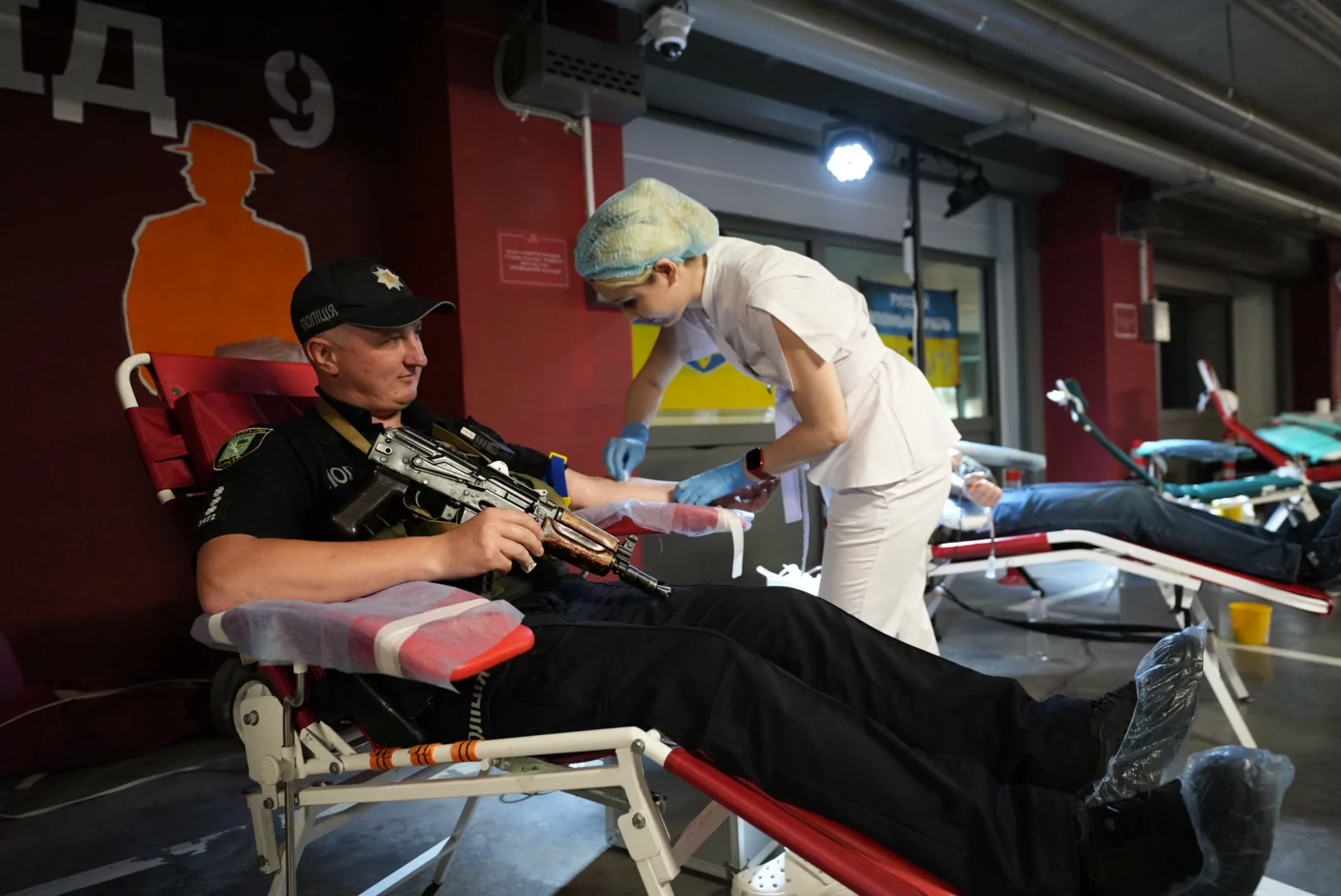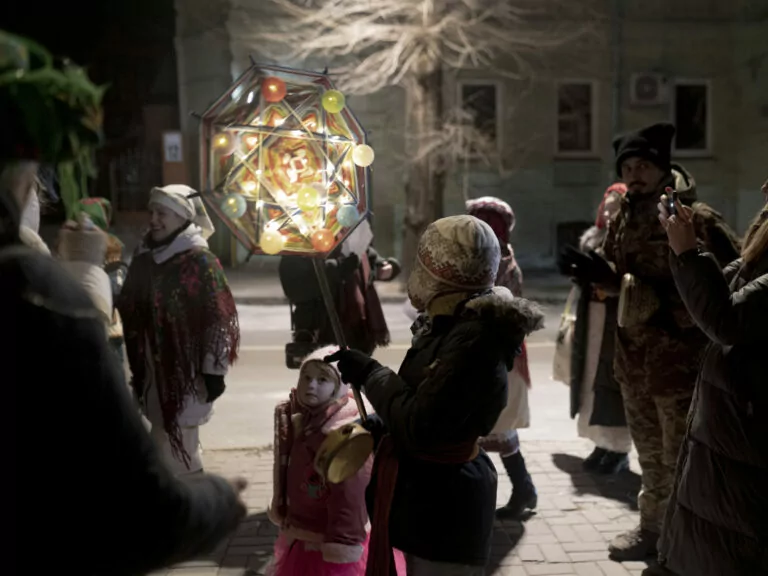The need for donors in Ukraine has increased significantly since the beginning of the full-scale invasion.
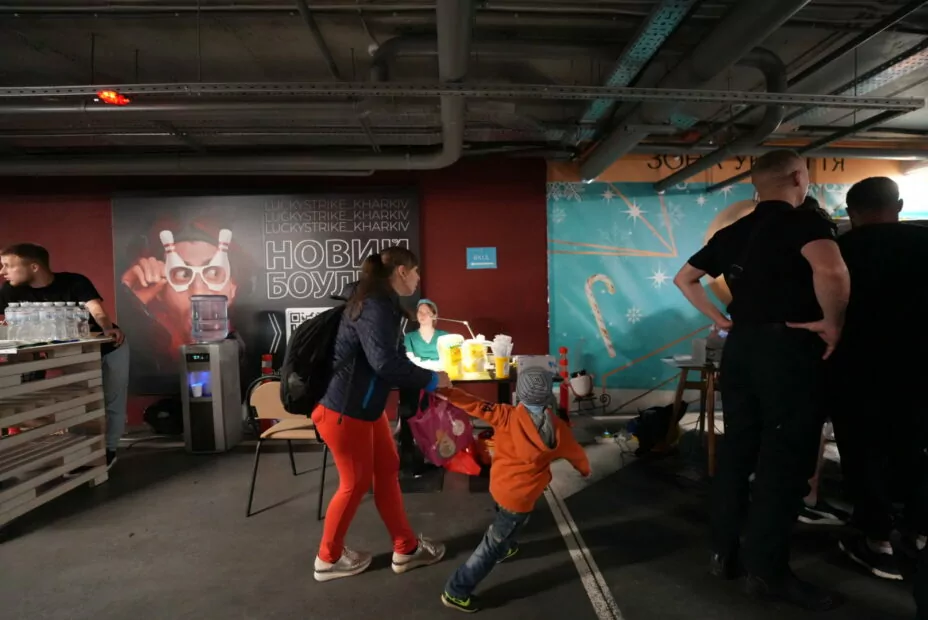
Previously, blood was primarily required to treat seriously ill adults and children. Still, the number of people seriously injured in the hostilities and being treated in Kharkiv has increased.
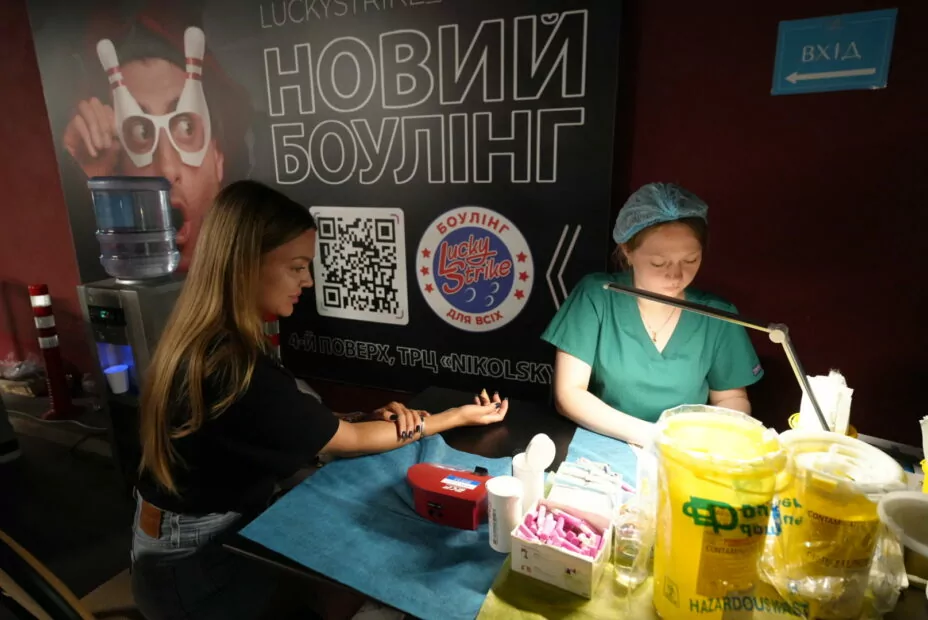
Each donor can save a few people. Gwara Media found out what the blood supply needs are in Kharkiv and who can become a donor.
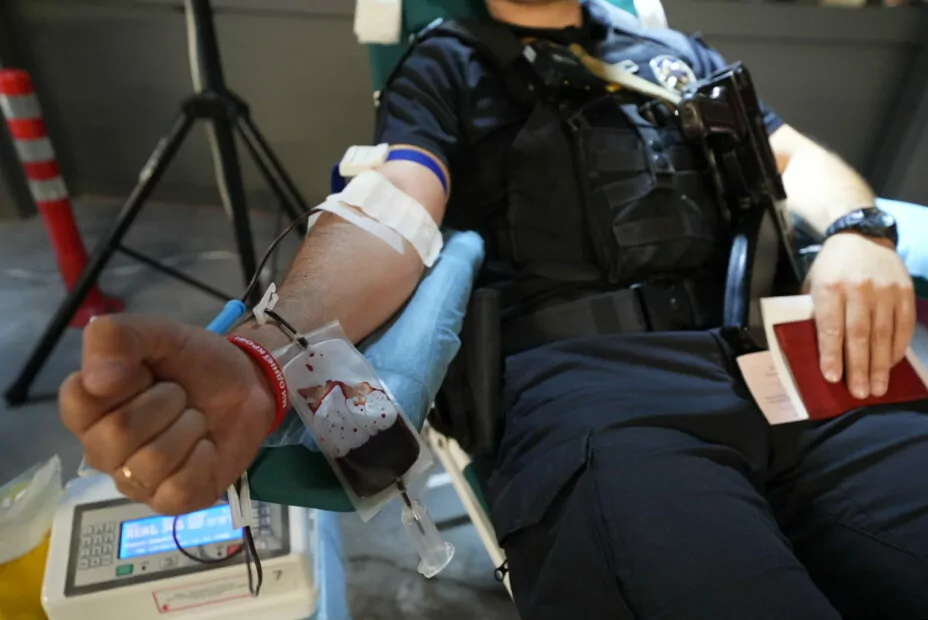
On World Blood Donor Day, about 300 Kharkiv residents donated blood for the Ukrainian Armed Forces at two locations. An on-site team worked at the Nikolsky shopping mall, and a DJ and musicians performed for the visitors, branded merchandise from the Blood Centre, and lots of goodies. Traditionally, donors were welcomed at the Kharkiv Blood Centre at 366 Klochkivska Street.

“We have started a tradition of holding blood donations in several locations: the blood centre and Nikolsky shopping mall. Today, about 200 people came to the centre, while about 100 Kharkiv residents came to the shopping mall. We congratulated our honorary donors, presented them with certificates of honorary donors of Ukraine, and recognized the blood service employees who have worked almost seven days a week since 24 February 2022.
We always have an urgent need for negative blood types. If seriously injured people are on the front line, they are transfused with the first negative group while being taken to stabilization centres. Therefore, not only Kharkiv, but the whole of Ukraine is working to provide blood for the wounded,” Olena Malygon, Deputy Director of Kharkiv Blood Service Centre, commented to Gwara Media.
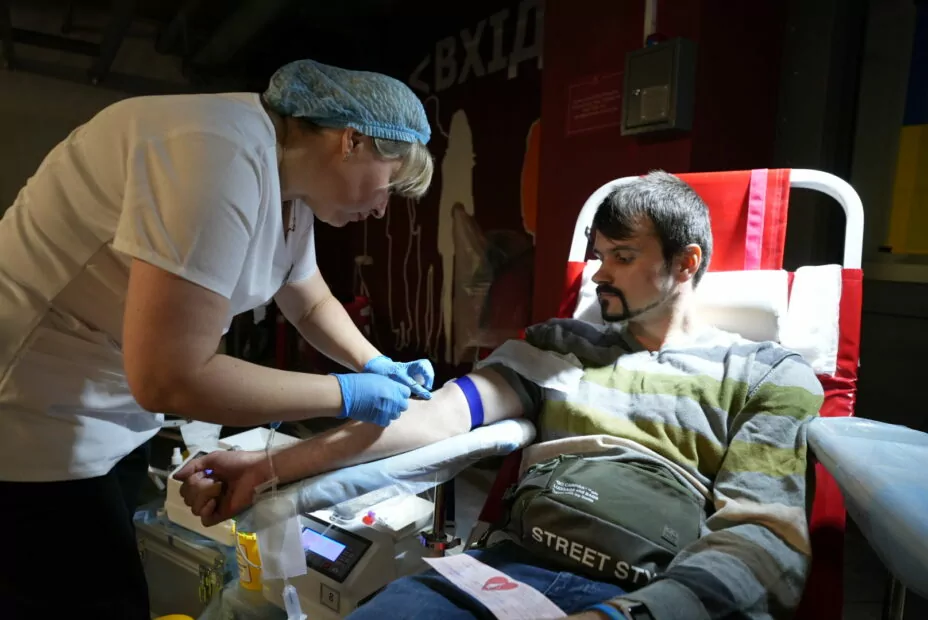
Such activities will be regularly held in Kharkiv’s shopping malls: the next one is scheduled for July 2023.
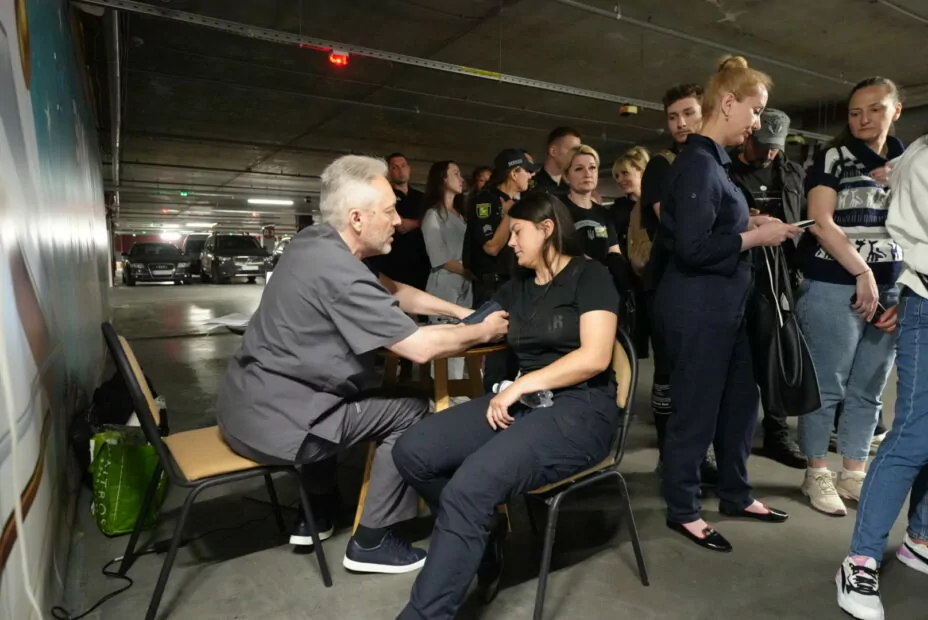
Donor blood in Ukraine
In Ukraine, only a third of patients receive donated blood on time. According to WHO estimates, the minimum number of donors needed in any country is 1% of the population (in peacetime). It is worth noting that a developed healthcare system in a full-scale war requires much more donors.
As of 2020, the total number of donors in Ukraine was about 320,000 people out of 44 million. This situation is because the country is used to spontaneous and family donation (a situation where people donate blood exclusively for their loved ones if their lives are in danger). It also affects the quality of blood, which creates another problem – the risk of infection.
How to become a donor in Ukraine
People aged 18 to 65 years (at least 50 kg) can become blood donors. You need a passport and identification code (if it is an ID card, a certificate of registration).
- Do not take blood thinners, such as aspirin, analgin, within 72 hours.
- Do not drink alcohol 24 hours beforehand.
- You should get a good night’s sleep and have a light breakfast on the day of the donation (you can drink sweet tea, fruit drink, compote, mineral water, and eat bread, crackers, boiled porridge, jam, fish, vegetables and fruits, except bananas.
- Within 12 hours, you should not eat fried, spicy, salty, smoked, bananas, eggs, dairy products and butter. Sweet tea, fruit drink, compote, mineral water, jam, bread, crackers, boiled cereals, fish, vegetables, and fruit (except bananas) are better.
- It is recommended to refrain from smoking. It is advisable not to smoke an hour before and after the donation procedure.
- Feeling good after donating blood or blood components will be ensured by 2 glasses of juice or water drunk before the donation.
- Do not come to donate blood if you feel unwell (chills, dizziness, headache, weakness).
- Before donating, you should answer the doctor’s questions frankly and not conceal information about using medicines, alcohol, drugs and past illnesses.
After the donation, you should
- Rest for 10–15 minutes.
- If you feel dizzy or weak, inform the staff.
- Do not try to walk or drive immediately if you feel dizzy.
- Do not lift anything heavy with the arm from which blood was taken for 2–3 hours.
- Do not remove the bandage or try to wet it for 3–4 hours. This will prevent bruising.
- Avoid intense physical activity for the next 12 hours.
- Eat a full and regular diet for two days.
- For two days, consume an increased amount of fluids (at least 2 litres per day) – juices, water, weak tea (alcohol is not recommended).
Contraindications to donation
- Serious active, chronic, non-communicable diseases.
- Pathological tendency to bleed.
- Multiple cases of loss of consciousness or seizures.
- Diabetes mellitus (insulin use).
- Infectious diseases (hepatitis B and C, HIV, etc.).
- Oncopathology.
- Any cases of intravenous or intramuscular injections with drugs not prescribed by a doctor, including the use of steroids and hormones.
Read also
- Humanitarian aid center for the affected residents of Kherson region opened in Kharkiv. Kharkiv locals can donate personal hygiene products, long-lasting food, animal feed and cages, and motorboats.
- Kharkiv residents collected over 100 tonnes of humanitarian aid for Kherson Oblast. Another truck with drinking water was sent to the flood victims last week.
